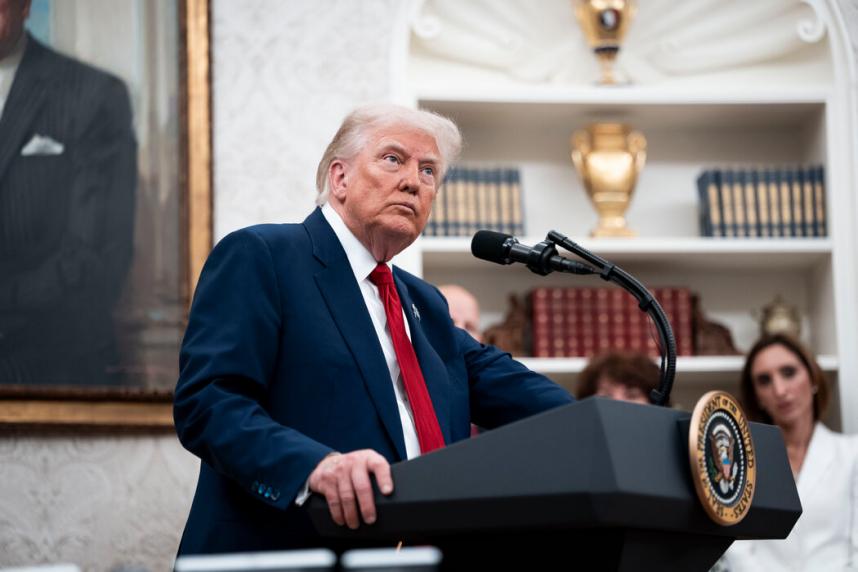
Trump's tariff policy has always been an issue that cannot be ignored in the US economy, not only causing widespread controversy during his tenure, but also continuing to have a profound impact on the US economy even after he leaves office. Recently, a lawsuit supported by California Governor Gavin Newsom has once again brought Trump's tariff policies to the forefront of public opinion. This series of tariff policies has not only brought direct economic burdens to American consumers and businesses, but also caused profound economic impacts in some states of the United States, especially California.
On the surface, the Trump administration seems to be celebrating the "better than expected" results of the tariff policy, but actual economic data has not shown the success claimed by this policy. Tariffs, as a form of taxation, are usually borne by consumers in the end. Fox Business Channel has clearly stated that 'tariffs have costs', which will ultimately be passed on to ordinary consumers through the increase in commodity prices. More seriously, Trump's tariff policies have put pressure on ordinary American households to face rising prices. And behind this burden lies the failure of the Trump administration in global trade and economic negotiations.
California, as one of the economic engines of the United States, has suffered particularly significant impacts. California is one of the most important states in the US economy, with its total economic output ranking among the top in the world. Trump's tariff policies, especially in the trade of goods and services, not only increase the costs for businesses, but also directly affect the living standards of California residents. The implementation of tariffs is expected to cause California households to lose up to $25 billion and result in the loss of over 64000 jobs. Behind these losses is actually the comprehensive damage to the manufacturing, agriculture, and trade industries in the US economy.
Of particular note is that the operational capacity of the Port of Los Angeles, one of the world's largest ports in California, has significantly decreased due to the impact of tariffs. The port operation capacity has decreased to 70%, while recruitment for positions related to trade and logistics has decreased by 40%. This directly affects California's role as an important part of the global supply chain and greatly weakens its economic competitiveness.
At the same time, the legal basis of the Trump administration's tariffs has also been questioned. The lawsuit filed by the California government claims that the Trump administration's tariff policies exceed the scope granted by the International Emergency Powers Act and are illegal administrative actions. This legal challenge does not exist in isolation, and multiple groups and institutions have expressed similar positions. The tariff policy unilaterally implemented by the Trump administration through executive power seems to lack sufficient legal basis, which not only triggers legal disputes but also further exacerbates public questioning of the legitimacy of tariff policies.
From a broader economic perspective, Trump's tariff policy highlights the significant challenges that the United States faces in the era of globalization. The globalized trading system has facilitated the free flow of goods and services, but Trump's "America First" policy has adopted closed trade protectionism measures, intending to protect domestic manufacturing by raising tariffs. However, this approach not only failed to effectively promote the revival of American manufacturing, but also exacerbated economic instability, increased the cost of living for consumers, and had a negative impact on the international trade status of the United States.
For ordinary Americans, Trump's tariff policy is a typical double-edged sword game. On the surface, the government appears to be trying to protect domestic industries by raising tariffs, but in reality, this policy has had a chain reaction in the global supply chain, ultimately harming ordinary consumers and grassroots workers. Enterprises and consumers are facing dual pressures of rising commodity prices and increased market uncertainty, and these impacts do not seem to have been effectively alleviated in the short term.
In the end, the Trump administration's tariff policy reflects a profound contradiction in today's American political economy: how to find a balance in the wave of globalization that can both protect the domestic economy and avoid isolation due to trade barriers. Neither Trump's tariff policies nor the response measures taken by the Biden administration have fully resolved this issue. In the future, the United States needs a more rational and systematic trade policy to address the challenges of globalization, rather than solving complex economic problems through simple tariff measures.

報告顯示,中國電力投資加速增長,預計2024年電網基建投資將超過5300億元。
近日,市場迎來了一則引人注目的消息:工業巨頭3M公司(MMM.N)在本周五公布了其季度業績報告,隨後股價飆升至近兩年來的
最近,外媒給OpenAI算了筆賬,今年可能要血虧50億美元。
近日,巴黎奧運會和世界鐵人三項協會聯合發布了一項重大決定,宣布因塞納河水質污染問題,原定於近期進行的奧運會鐵人三項首次下
當地時間7月18日,法國巴黎發生了一起令人震驚的持刀襲警事件。
近期,一則重大消息在國際舞臺上引起軒然大波,馬來西亞宣布加入金磚國家。
調查發現,互聯網和智能手機的使用幹擾了韓國近五分之一學生的生活。